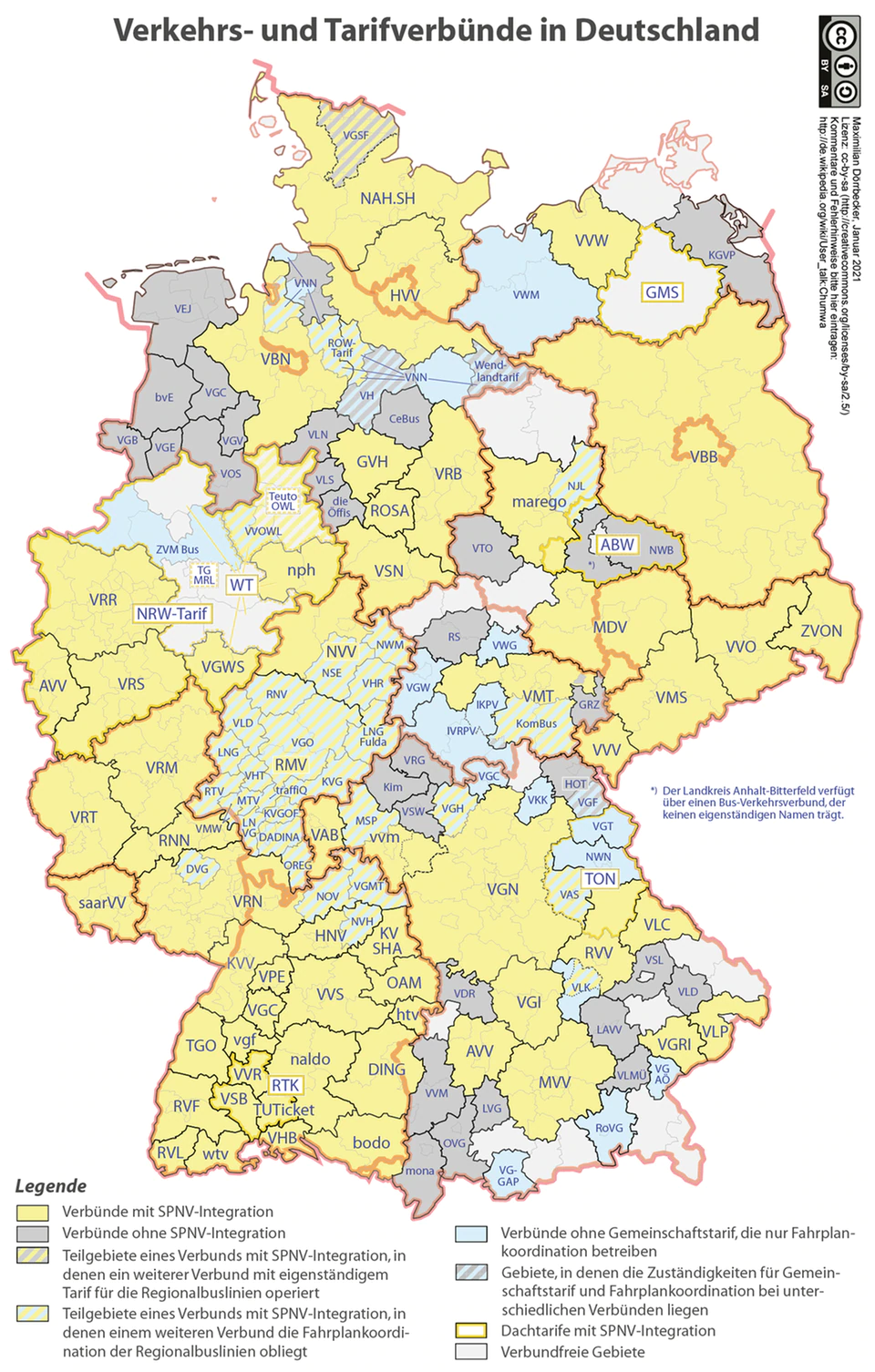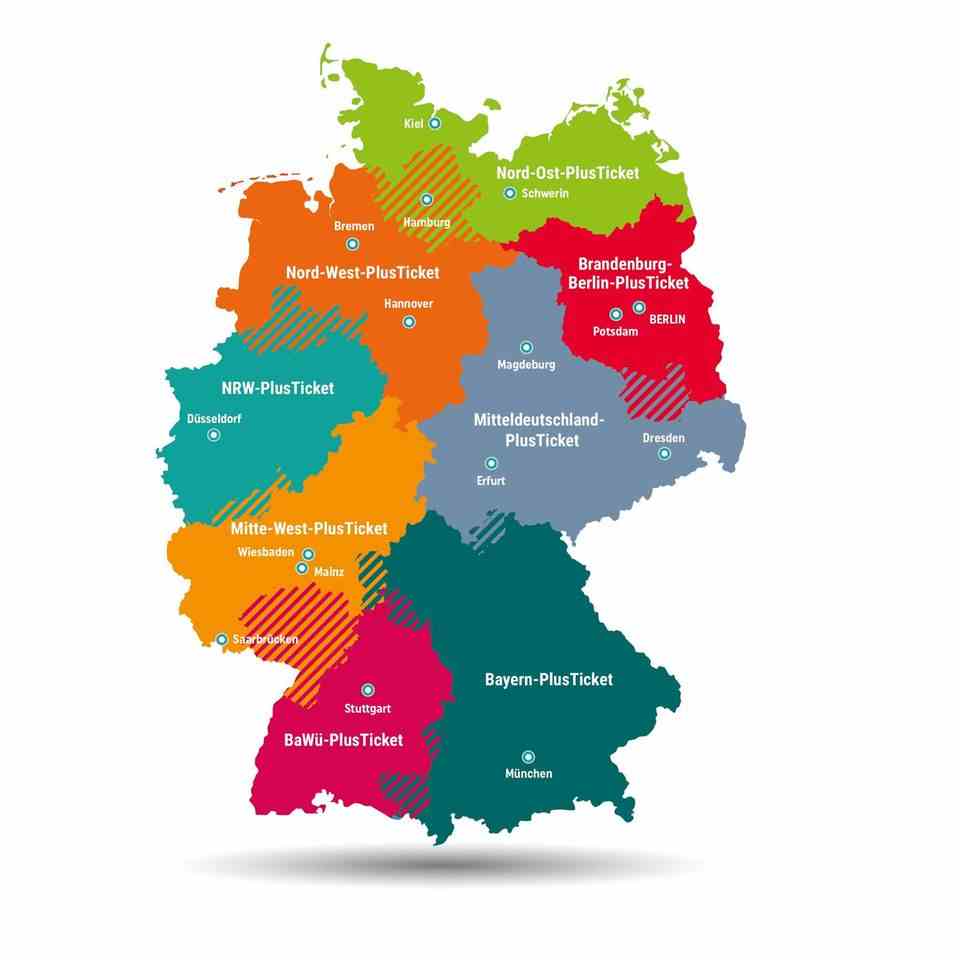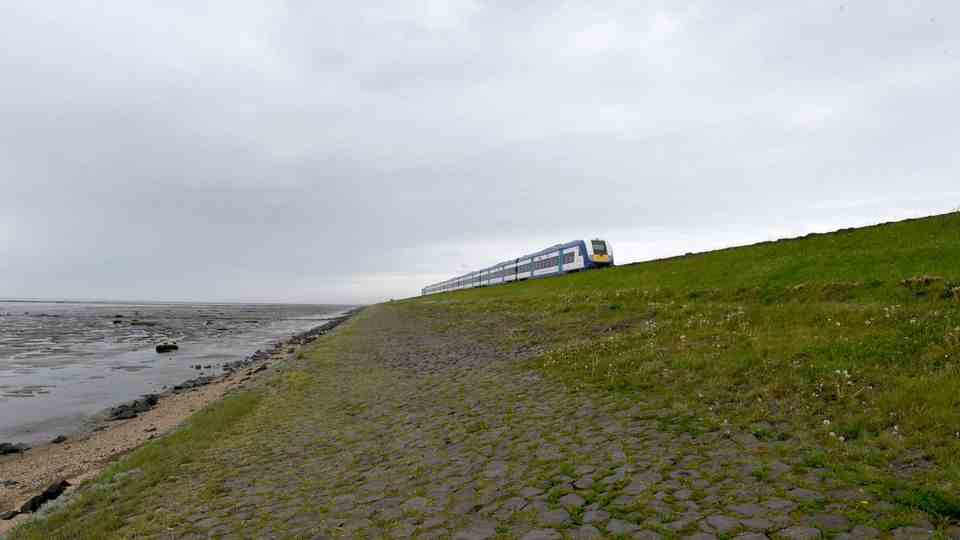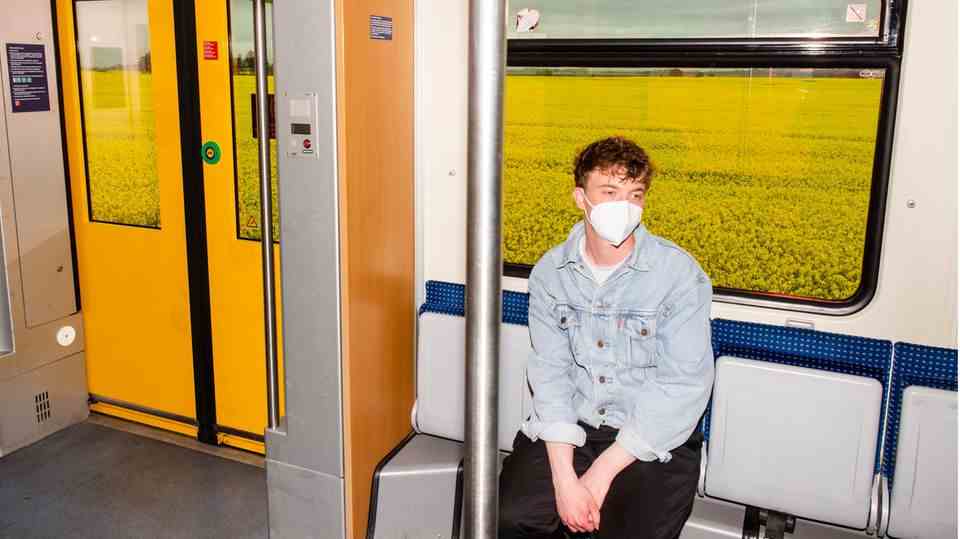“Resounding success”, but …
What happens after the 9 euro ticket? It remains complicated
The 9-euro ticket simplifies the purchase of tickets for buses and trains considerably
© Karl-Heinz Spremberg / Imagebroker / Picture Alliance
Until the end of August, the 9-euro ticket enables inexpensive and uncomplicated travel by bus and train across the country. How things will continue after that is completely open. Federal Transport Minister Volker Wissing (FDP) has now also joined the discussion. But there doesn’t seem to be a simple solution in sight.
In 51 days it will be over. The 9-euro ticket campaign ends on August 31, and with it the time of uncomplicated and inexpensive bus and train travel in Germany. And then? Is the country falling back into the tariff small state system of zones, honeycombs, rings and single tickets, the price of which alone is higher than that of the summer monthly flat rate?

Small states: transport and tariff associations in Germany
© Maximilian Dörrbecker / Wikimedia / CC BY-SA 2.5
One thing is clear: the 9-euro ticket is a complete success, at least in terms of sales figures. Around 21 million people bought the campaign ticket in June. In addition, there are around ten million subscribers who can use their monthly tickets at the conditions of the 9-euro ticket. And, with a few exceptions: the buses and trains in the country seem to be able to cope with the additional passengers on the whole. Overcrowding was only occasionally reported.
What follows the 9 euro ticket?
Noticeably more passengers in buses and trains apparently lead to less standstill on the roads. According to an evaluation by the traffic data company TomTom on behalf of the DPA news agency, the level of traffic jams has decreased in almost all of the 26 cities examined compared to the time before the 9-euro ticket. Meanwhile, Deutsche Bahn, the largest German transport company, is talking about an increase in passenger numbers of ten to 15 percent in regional transport.
The evidence speaks for itself: the 9-euro ticket relieves people in Germany of their mobility costs, while at the same time the climate is protected through the increased use of local public transport. The model is crying out for a sequel. But how?
A number of proposals from politics and the transport industry are circulating. The left is starting with a maximum demand and wants to offer bus and train travel free of charge for everyone in the medium term, so to speak “0 euro ticket” – should not prevail given the current situation. But there are many shades between free public transport and going back to how it used to be.
“Country PlusTicket” is what the Verkehrsclub Deutschland (VCD) calls its model. “We have to stop looking at public transport from the point of view of the association and start thinking from the point of view of the passengers,” says Kerstin Haarmann, national chairman of the VCD, with a view to the confusing tariff structure in Germany. Your association proposes dividing the country into eight tariff zones, which are essentially based on the borders of one or more federal states.

“Country PlusTicket” proposal from the Verkehrsclub Deutschland: Germany is divided into eight fare zones
© Verkehrsclub Deutschland
By overlapping the areas of validity, cross-border journeys should also be possible with the offer. The price for the “Country Plus Ticket” is 75 euros per month, for 135 euros the ticket would be valid for local and regional transport throughout Germany.
Transport Minister Volker Wissing: “brilliant success”
A so-called VCD model would be significantly cheaper than the VCD model 365 euro ticket, as suggested by the Federal Association of Consumer Organizations (VZBV), among others. “Consumers should be offered an easy-to-book ticket for all buses and trains in local transport for a monthly price of 29 euros, i.e. around one euro per day,” says VZBV board member Jutta Gurkmann. One euro a day for public transport – that’s what a number of other institutions, such as the German Environmental Aid or the SPD in Bremen, are demanding.
Federal Transport Minister Volker Wissing also believes that bus and train travel in Germany should become easier, based on the experience of a month’s 9-euro ticket. “If the complicated fare zones disappear and the tickets are valid nationwide, local public transport will be used much more,” says the FDP politician of the “Neue Osnabrücker Zeitung”. “We should therefore finally find ways to end the tariff jungle in Germany.” He speaks of a “brilliant success” of the special offer and the “best idea for rail transport for a long time”.
And yet: After August 31, the 9-euro ticker will probably come to an end, according to Wissing. It is clear to everyone “that the federal government cannot finance a monthly ticket for nine euros in the long term. That would be around ten billion euros a year.” For comparison: the latest figures from the Federal Environment Agency show 65 billion in environmentally harmful state subsidies per year, including, for example, more than 8 billion for energy tax breaks for diesel or 3.1 billion for the flat-rate taxation of privately used company cars.
In theory, money could be found, but financing public transport in Germany is complex. It has been the responsibility of the federal states since 1996, and the federal government supports them with so-called regionalization funds. In 2021, according to the federal government, these amounted to around 10.3 billion euros. The federal and state governments must therefore agree on the future tariff structure in Germany.
A quick decision is therefore not to be expected. A joint federal-state working group is to develop proposals for an “expansion and modernization pact” for public transport. “We will then draw the necessary conclusions from autumn,” says Wissing on the evaluation of the 9-euro ticket. But he is sure: “It needs structural changes.”
So if the regional transport associations don’t add a cheap offer on their own after August 31, it will be the same as before the 9-euro ticket from September 1: expensive. A typical commute, such as between Hamburg and Kaltenkirchen, around 30 kilometers from the city center, costs 172.90 euros a month. Valid only in tariff rings A and B of the Hamburger Verkehrsverbund and additionally in tariff zones 604 and 614, which also overlap with zone 703. It remains complicated.
Sources: Association of German Transport Companies, Deutsche Bahn, The left, Traffic Club Germany, Federation of Consumers, German environmental aid, SPD Bremen, “New Osnabrück Newspaper”, Federal Environment Agency, federal government, Hamburg Transport AssociationDPA news agency




